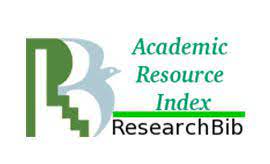THE NEGATIVE IMPACT OF THE RUSSIANS’ APPROPRIATION OF DISCOVERIES IN CHEMISTRY MADE BY SCIENTISTS FROM OTHER COUNTRIES ON THE FORMATION OF STUDENTS’ WORLDVIEW DURING THE EDUCATIONAL PROCESS
DOI:
https://doi.org/10.51707/2618-0529-2024-29-02Keywords:
chemistry, scientific discoveries, scientific plagiarism, chemist.Abstract
The article is devoted to the study of the history of scientific discoveries in chemistry in order to revise the negative influence of russian scientists and the legacy of the Soviet Union on chemical education in Ukraine. Russian encroachment on the achievements of other states has affected virtually all spheres of life: the history of statehood, national symbols, world-famous writers and artists, inventions, technology and goods, and national cuisine. This also applies to innovations in science, particularly in chemistry. Russians boast about the outstanding russian chemists of the past centuries who allegedly achieved great success in the international field, although scientific plagiarism has always been popular in russia. Some laws, rules, doctrines, or theories that have been studied or continue to be studied even in Ukrainian schools as authored by russian scientists such as Mykhailo Lomonosov, Dmytro Mendeleev, Oleksandr Butlerov, and Volodymyr Markovnikov are actually the work of other people. The real authors of some of the inventions in chemistry are not of russian origin at all; they were never russians. They belonged to the European school of thought. The fundamental law of chemistry, the law of conservation of mass, attributed to Lomonosov, is of ancient origin and experimentally proven by the French scientist Antoine Lavoisier. Outside of the post-Soviet space, the periodic table is often associated with the name of the German scientist Julius Meyer and is known as the discoverer of the periodic law. Even the russian historian Kedrov emphasized Mendeleev’s “one-day discovery”. Meyer and Mendeleev had a long dispute about priorities and for the right of primacy in the discovery of the periodic table. Another russian, Butlerov, who allegedly developed the theory of the chemical structure of organic substances, got his ideas from the German scientist August Kekule, whose textbook and articles were published before Butlerov’s works. A study of contemporary literature shows that neither Markovnykov nor any of his contemporaries actually carried out the reactions attributed to him, and Markovnykov’s empirical rule is impossible without propylene or propane, which had not yet been obtained at the time. The situation that has developed due to the use of russian scientific plagiarism by Ukrainian schools has a negative impact on the formation of the worldview of students.
References
Stepanenko, V. (2022). Shcho pryvlasnyla Rosiіa? [What Russia appropriated?]. ukrainer.net. Retrieved from https://www.ukrainer.net/rosia-pryvlasnyla [in Ukrainian].
Lyst Ministerstva osvity i nauky Ukrainy Pro pereliky navchalnoi literatury ta navchalnykh prohram, rekomendovanykh Ministerstvom osvity i nauky Ukrainy dlia vykorystannia v osvitnomu protsesi zakladiv osvity u 2023/2024 navchalnomu rotsi [Letter of the Ministry of Education and Science of Ukraine About the lists of educational literature and educational programs recommended by the Ministry of Education and Science of Ukraine for use in the educational process of educational institutions in the 2023/2024 academic year]. (2023, August 14, № 1/12038-23). Retrieved from https://osvita.ua/legislation/Ser_osv/89766 [in Ukrainian].
Yaroshenko, O. G. (2015). Khimiia [Chemistry : a textbook for the 7th grade for institutions of general education]. Kharkiv : SYTSYIA [in Ukrainian].
Kryklia, L. S., & Popel, P. P. (2020). Khimiia [Chemistry : a textbook for the 7th grade for institutions of general education]. Kyiv : Akademiia [in Ukrainian].
Savchyn, M. M. (2015). Khimiia [Chemistry : a textbook for the 7th grade for institutions of general education]. Kyiv : Hramota [in Ukrainian].
Savchyn, M. M. (2018). Khimiia (riven standartu) [Chemistry (standard level) : a textbook for the 10th grade for institutions of general education]. Kyiv : Hramota [in Ukrainian].
Yaroshenko, O. G. (2018). Khimiia (riven standartu) [Chemistry (standard level) : a textbook for the 10th grade for institutions of general education]. Kyiv : Orion [in Ukrainian].
Hryhorovych, O. V. (2018). Khimiia (riven standartu) [Chemistry (standard level) : a textbook for the 10th grade for institutions of general education]. Kharkiv : Ranok [in Ukrainian].
Velychko, L. P. (2018). Khimiia (profilnyi riven) [Chemistry (profile level) : a textbook for the 10th grade for institutions of general education]. Kyiv : Shkoliar [in Ukrainian].
Antoine Lavoisier. (n.d.). britannica.com. Retrieved from https://www.britannica.com/biography/Antoine-Lavoisier.
Lothar Meyer. (n.d.). britannica.com. Retrieved from https://www.britannica.com/biography/Lothar-Meyer.
Kovtun, H. O. (2005). Vydatnyi khimik D. I. Mendelieiev i horilka [The outstanding chemist D. I. Mendeleev and vodka]. Nauka ta Innovatsii — Science and Innovation, 1 (2), рр. 123–126 [in Ukrainian].
Sutton, M. (2019). The father of the periodic table. chemistryworld.com. Retrieved from https://www.chemistryworld.com/features/the-father-of-theperiodic-table/3009828.article.
History of chemistry. (n.d.). en.wikipedia.org. Retrieved from https://en.wikipedia.org/wiki/History_of_chemistry.
Lothar von Meyer, German Chemist. (n.d.). album-online.com. Retrieved from https://www.album-online.com/detail/en/Nzg1ZGE3MA/juliuslothar-meyer-august-1830-april-1895-germanchemist-graduation-alb3801229?sT=6+APRIL+1869&iSF=3.
Rocke, A. J. (2023). August Kekule von Stradonitz, German chemist. britannica.com. Retrieved from https://www.britannica.com/biography/August-Kekule-von-Stradonitz.
Kerber, R. C. (2002). Markovnikov’s Rule in History and Pedagogy. Foundations of Chemistry, 4, 61–72. DOI: https://doi.org/10.1023/A:1014479921278.
Hughes, P. (2006). Was Markovnikov’s Rule an Inspired Guess? Аstrophysics data system, 83 (8), 1152. Retrieved from https://pubs.acs.org/doi/10.1021/ed083p1152.
Lewis, D. E. (2021). The Logic Behind Markovnikov’s Rule: Was It an Inspired Guess? …No! Angewandte Chemie International Edition, 60 (9), 4412–4421. DOI: https://doi.org/10.1002/anie.202008228.
Downloads
Published
How to Cite
Issue
Section
License
Copyright (c) 2024 Scientific notes of Junior Academy of Sciences of Ukraine

This work is licensed under a Creative Commons Attribution 4.0 International License.













